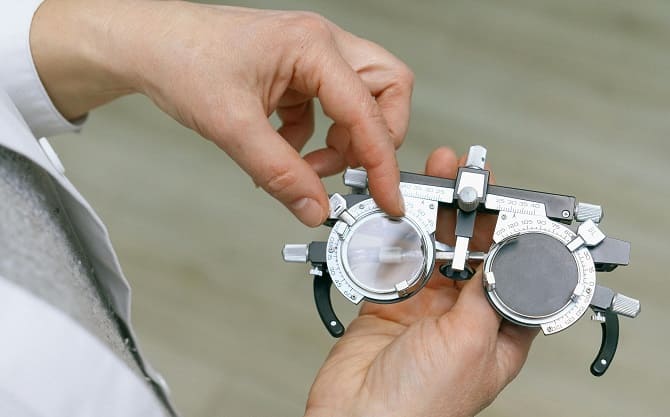Whether the surgery is being performed to remove cataracts, correct eyesight, or handle other ocular concerns, it is a major medical treatment that has to be well-prepared for and understood.
The purpose of this article is to arm you with the knowledge you need to make wise choices and guarantee a painless surgical procedure.
1. Understanding the Type of Eye Surgery You Need
Knowing what kind of operation you require is the first step in getting ready for eye surgery. There are many different types of eye operations, including cataract surgery, lasik surgery, glaucoma treatment, and treatments for retinal problems or glaucoma. Every kind of operation has unique methods, dangers, and recuperation periods. See your ophthalmologist for a thorough description of the procedure that will be performed on you. Please inquire as to the need for the operation, the procedure’s expected results, its possible hazards, and expectations around it. Having reasonable expectations and being well-informed about the treatment might help reduce anxiety.
2. Evaluating the Surgeon’s Expertise and Credentials
The outcome of your eye surgery depends on your selection of the surgeon. Examine the qualifications and background of the ophthalmologists you are thinking about. Seek out doctors with board certifications who are experts in the kind of surgery you require. Ask the surgeon about their success rates and the number of surgeries they have completed, as experience counts. Gaining knowledge about the surgeon’s skill and approach to patient care may also be gleaned by reading patient endorsements and reviews. It’s critical to have faith in your surgeon’s skills and know that you are in good hands.
3. Preparing for the Pre-Surgery Consultation
You get the chance to get all the information you need and be ready for the treatment at your pre-surgery consultation. The surgeon will do a thorough eye examination during this visit in order to evaluate the condition of your eyes and determine whether you are a good candidate for surgery. This is the appropriate moment to share your medical history, including any current medicines that may need to be changed or stopped prior to surgery. Talk to the doctor about any worries or inquiries you may have regarding the expected recovery period, post-operative care, and any side effects. The results of the operation can be greatly influenced by carefully adhering to the surgeon’s pre-operative instructions.
4. Understanding the Risks and Benefits
Eye surgery has advantages and disadvantages of its own, just like any other medical operation. It’s critical to thoroughly consider things before making a decision. Infection, alterations in vision, dry eyes, or anesthesia-related problems are examples of potential concerns. For the majority of patients, however, the advantages—such as better vision, an increased quality of life, and the stoppage of more eye deterioration—often exceed the hazards. About the possibility of these hazards and the measures taken to mitigate them, your surgeon will provide you with comprehensive information. Comprehending the advantages and disadvantages of the procedure will facilitate your decision-making.
5. Preparing for Post-Surgery Recovery
After eye surgery, recovery is an important step, and being ready can help the process go more smoothly and comfortably. You will receive detailed instructions from your surgeon for post-operative care. These instructions may include using prescribed eye drops, refraining from physically demanding activities, and shielding your eyes from allergens such as smoke and dust. Make plans for someone to help you during your early recovery time and drive you home following surgery. You must show up for all follow-up visits so that your recovery progresses and any concerns may be quickly addressed. You may better control your expectations and promote a speedier return to your regular activities by being aware of what to expect throughout recovery.
Read more: Eye Health Tips: How to Keep Eyes Healthy and Beautiful Naturally
6. Conclusion
Better eyesight and a higher quality of life can be obtained with surgery, which has the potential to transform lives. But it does need thorough planning and thought. You can guarantee a good result by being aware of the kind of surgery you require, assessing the skill of your surgeon, getting ready for the pre-operative consultation, assessing the advantages and disadvantages, and making plans for your recovery after the procedure. By following these guidelines, you’ll feel more knowledgeable and confident, which will eventually make the procedure go more smoothly and produce the best outcomes.





